
Podcasting as a teaching tool
Imagine turning your classroom into a space where stories come alive, ideas spark curiosity, and students engage on their own terms. That’s the magic of podcasting! Far from just another teaching tool, podcasts can help create immersive, flexible, and unforgettable learning experiences.
Using a Universal Design for Learning (UDL) lens, podcasts can amplify your students’ voices, make complex topics accessible, or connect learning to the real world, and help transform how you teach. Here are some ideas to spark ideas for your course and student engagement.
Why podcasts?
Podcasts bring unique advantages to education:
- Accessibility and Flexibility: Students can listen anytime, anywhere—during commutes, workouts, or study breaks. This convenience accommodates diverse learning schedules and styles.
- Encouraging Movement: Research demonstrates that people learn more effectively when information is presented in multiple ways—which enhances encoding into long-term memory [1]. For instance, incorporating gestures into teaching improves retention, with even small hand movements significantly boosting students’ ability to remember material [2]. Additionally, physical activity, regardless of its direct connection to the subject matter, activates the brain, enhances cognitive function, and correlates with better academic performance [3]. To Boost Learning, Just Add Movement | Cult of Pedagogy.
- Engagement: By incorporating storytelling, real-time conversations, and expert interviews, podcasts can make complex subjects relatable and exciting. Adding a human voice often bridges the emotional gap in learning. Podcasting in the Classroom: Activities & Recommendations.
- Universal Design for Learning (UDL): Podcasts align with UDL principles by offering multiple means of representation (audio content), expression (student-created podcasts), and engagement (diverse topics and delivery methods). Go to Resources, UDL and 21st Century Learning | Faculty Focus.
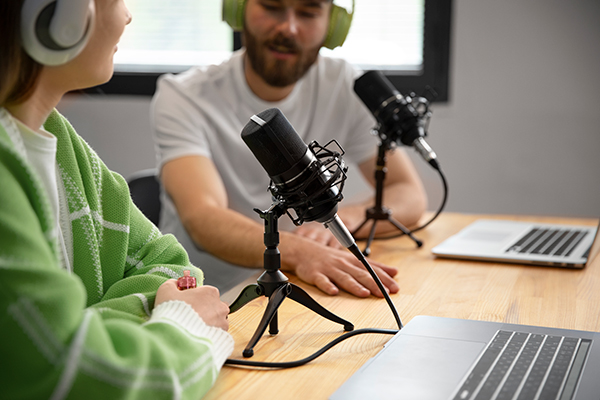
Podcasting in teaching
Here are some innovative ways educators can integrate podcasts into their courses:
- Supplement Course Material: Use episodes as additional resources to support lectures or textbooks. For instance, assign podcasts discussing contemporary issues to complement theoretical content.
- Encourage Critical Thinking: Assign students to listen to one or more podcast episodes and prepare arguments to refute or support presented ideas. This fosters analytical skills and promotes active learning.
- Interactive Activities: Students can compare, and contrast episodes covering similar topics or engage in discussions based on podcast interviews. Incorporating platforms like Perusall for collaborative annotations enhances interactivity.
- Creative Assignments: Allow students to create their own podcasts, helping them synthesize course material and present it in an innovative format. This fosters creativity and real-world application [see Sarah Weekes, Isabelle Deschamps].
When thinking about podcasting in your classroom, you will need to consider whether students are involved in the recording. Please consider the Virtual Lecture and Other Educational Activity Recordings Involving Students Policy v.3.

Benefits for educators
- Enhancing Teaching Skills: Engaging with podcasts, whether as a host or listener, sharpens communication, storytelling, and critical thinking skills—valuable assets for effective classroom teaching.
- Expanding Scholarly Impact: Academic podcasts offer opportunities for peer-reviewed contributions, serving as innovative scholarly outputs that enrich research and teaching portfolios.
- Fostering Community Connections: Podcasts create a platform for educators to share insights, connect with a wider audience, and bridge academic knowledge with the broader community, extending their reach beyond traditional boundaries.
- Convenient Professional Development: For busy professionals, podcasts provide a flexible way to engage in professional development. They can be listened to while multitasking—during commutes, workouts, or household chores—making it easier to stay informed and inspired without requiring dedicated time.
- Sparking Ideas and Creativity: Podcasts expose educators to diverse perspectives, innovative ideas, and creative solutions. Listening to discussions and stories from other professionals can inspire new approaches, ignite fresh thinking, and foster innovative practices in teaching and research.
- Providing Diverse Perspectives: Education podcasts often feature a wide range of experts, ensuring you get diverse viewpoints and insights on various topics.
- Cost-Effective: Most podcasts are free, making them a cost-effective way to access high-quality educational content.
- On-Demand Learning: You have the freedom to choose what you want to learn and when. Podcasts are available on-demand, allowing you to tailor your learning experience.
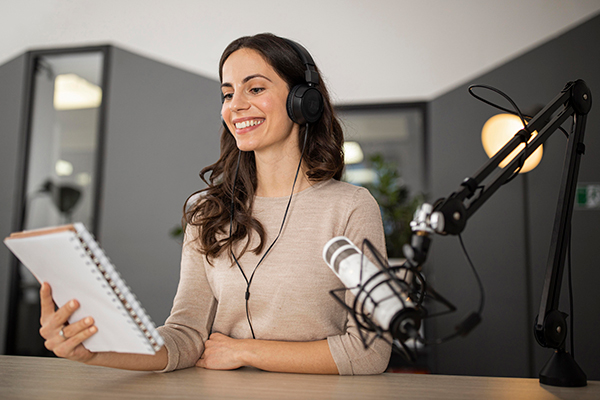
Teaching and learning podcasts
For those who are wanting to geek out with us, here are some great podcasts related to Teaching and Learning:
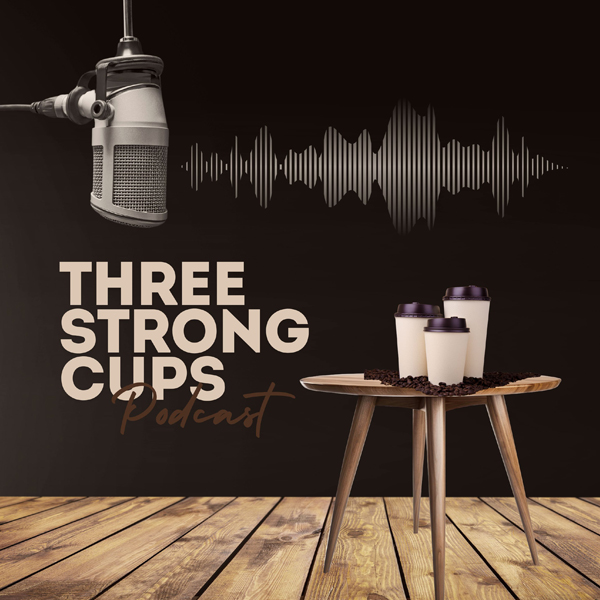
Three Strong Cups
Welcome to Three Strong Cups—the podcast that brews up conversations about life, education, and everything in between, with a focus on the world of higher education at Georgian College. Hosted by Kim Reid, Kelly Fox, and Jarrod Otterman, each episode invites listeners to sip on fresh, honest discussions, from campus happenings to personal stories.
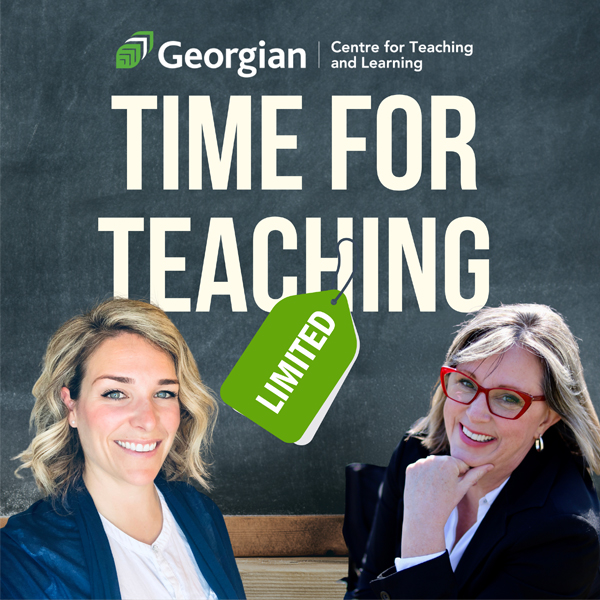
Time for Teaching-Reboot
Get ready for a thrilling ride as hosts Kim and Kelly reunite in the podcast space after what feels like an eternity. In this exciting introductory episode, they dive into the nostalgia of their past collaborations, sharing laughter, wit, and the unique bond that made their previous podcast a hit.
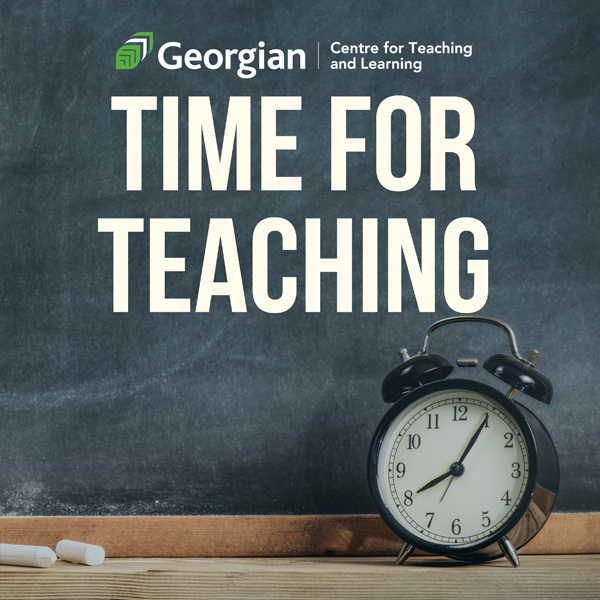
Time for Teaching
This podcast was born out of a passion for teaching and learning, & the recognition of how despite our best and most sincere intentions, sometimes there are just not enough hours in the day to do everything we’d like to.
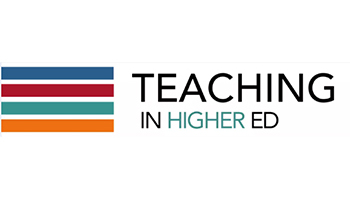
The Teaching in Higher Ed Podcast focuses on pedagogical approaches and strategies for higher education. It provides practical insights for educators.
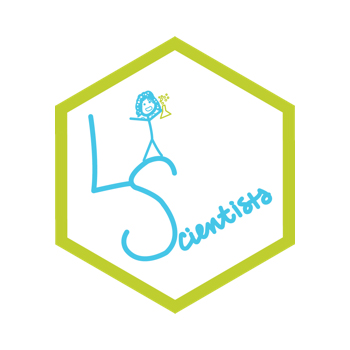
This podcast delves into the science of learning and effective study techniques. It provides evidence-based strategies for learners.
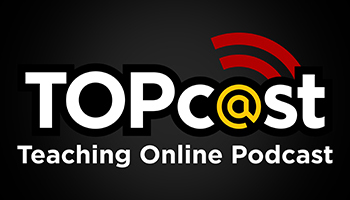
The Teaching Online Podcast (TOPcast), hosted by Dr. Thomas Cavanagh and Dr. Kelvin Thompson, is a monthly podcast for online and blended learning professionals conducted over a shared cup of coffee.
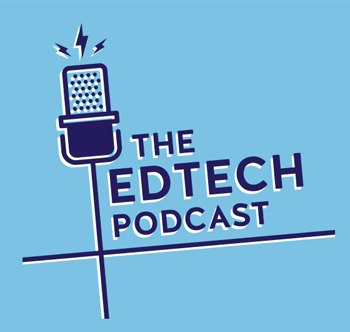
The Edtech Podcast improves the dialogue between ‘ed’ and ‘tech’ through storytelling for better innovation and impact and was founded and developed by Sophie Bailey in 2016.
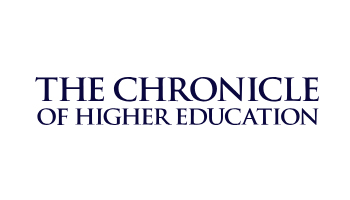
This podcast explores various aspects of higher education, including campus life, academic research, and career advice.
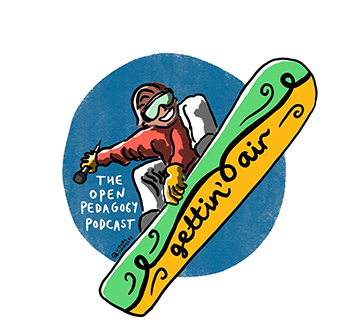
This podcast is from a local fellow educator, Terry Greene from Trent University. This award-winning podcast was launched in 2018, and now boasts 170 episodes of 30-minute conversations with experts in technology-based learning. Terry’s podcast serves as a platform for these ideas, connecting educators globally to share strategies and insights that break down barriers to learning.
Learn more about podcasting
Podcasting is more than a teaching tool; it’s a bridge to a richer, more interactive learning environment. By integrating podcasts into higher education, educators can inspire students, enhance accessibility, and foster a lifelong love for learning. Start your podcasting journey today and expand your impact as an educator!
Want to learn more….
References
- Sankey, M., Birch, D., & Gardiner, M. (2010). Engaging students through multimodal learning environments: The journey continues. In Proceedings ASCILITE 2010: 27th annual conference of the Australasian Society for Computers in Learning in Tertiary Education: Curriculum, technology and transformation for an unknown future (pp. 852-863). University of Queensland.
- Cook, S. W., Yip, T. K., & Goldin-Meadow, S. (2010). Gesturing makes memories that last. Journal of memory and language, 63(4), 465-475.
- Donnelly, J. E., & Lambourne, K. (2011). Classroom-based physical activity, cognition, and academic achievement. Preventive medicine, 52, S36-S42.
- Lengel, T., & Kuczala, M. S. (2010). The Kinesthetic Classroom: Teaching and Learning Through Movement (1st ed.). Corwin.
- Mobley, K., & Fisher, S. (2014). Ditching the Desks: Kinesthetic Learning in College Classrooms. The Social Studies, 105(6), 301–309. https://doi.org/10.1080/00377996.2014.951471